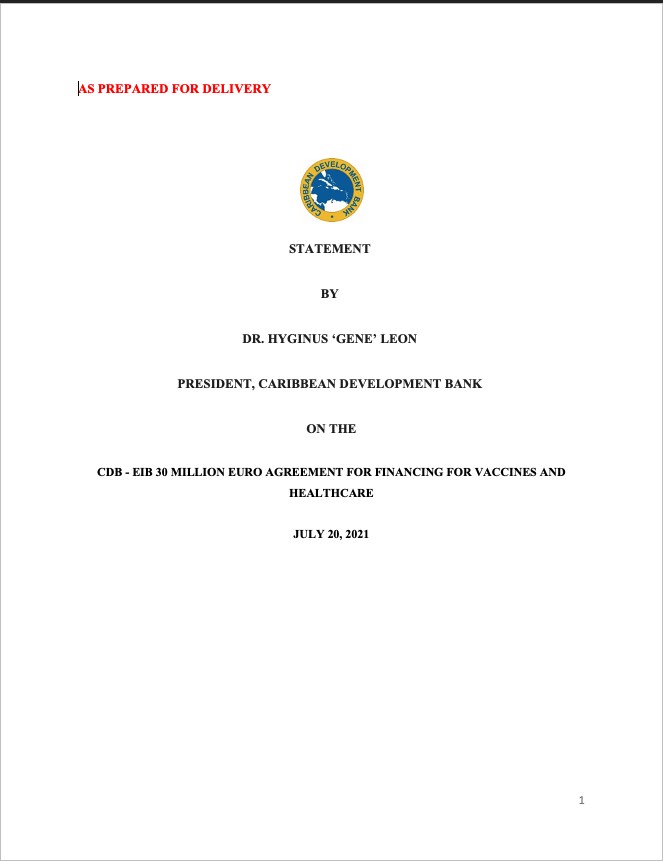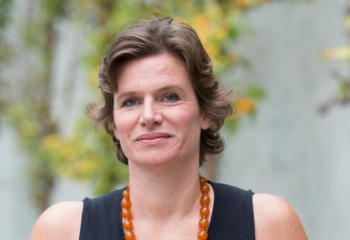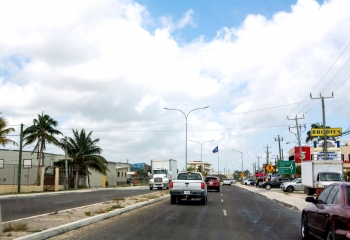Statement - CDB - EIB 30 Million Euro Agreement for Financing for Vaccines and Healthcare
Today’s signing ceremony is a momentous occasion; and I am very pleased to be participating alongside our partner, the European Investment Bank (EIB). By agreeing to repurpose funds under the existing Climate Action Line of Credit II (CALC II), EIB is facilitating the procurement of much-needed COVID 19 vaccines and enabling the borrowing member countries of the Caribbean Development Bank (CDB) to address critical challenges in their health care systems.
In my brief remarks today, I wish to make just two general points.
My first point is that the effects of COVID-19 have been unprecedented, and widespread, challenging the development community to come up with innovative solutions that can help the most disadvantaged countries respond swiftly, meaningfully, and effectively to this crisis.
More than 15 months have passed since the World Health Organisation declared COVID-19 a global pandemic. Since then, over 190 million cases have been confirmed, and 4 million deaths recorded.
High levels of COVID-19 vaccination in a population are linked to low rates of infection, hospitalisation, and deaths. However, the reality is, that only 0.3% of the more than 4 billion doses of vaccines already administered have been given in low-income countries. At the current pace, and based on issues with procurement and access, most low-income countries are unlikely to achieve mass COVID immunization (which is 70% of the population) before 2024.
This is clearly a major issue for our Region which has been severely impacted by the COVID 19 pandemic. Job losses have reached unprecedented levels; foreign exchange and remittance flows have been disrupted, and traditional revenue sources have dried up whilst Governments’ COVID-related expenditures have risen sharply. Unless brought under control, the pandemic could undermine hard-won development gains and stymie efforts to achieve the Sustainable Development Goals.
Vaccination of the populations to achieve “herd immunity” is crucial if the risk of infection is to be reduced; lives saved; and economies rebuilt safely. However, limited fiscal space, further undermined by the impacts of the pandemic, is challenging the capacity of countries to procure vaccines and to attend to the critical needs of the health sector.
CDB’s Borrowing Member Countries have received vaccines from the COVAX facility and from bilateral arrangements with donor partners. The uptake of vaccines (at least one dose) ranges from 5.5% in Jamaica to 71.4% in the Cayman Islands. This less than stellar performance is rooted in vaccine supply issues, costs, and vaccine hesitancy in our countries. A global infodemic around vaccines has influenced the knowledge, attitudes, and behaviours of persons, including Health Care workers.
CDB and EIB are constantly being challenged to become even more creative in crafting appropriate initiatives to support our member countries. The availability of this 30 million Euros will be critical for BMCs in getting more affordable access to safe vaccines and related material, equipment, and services for their populations.
Today’s signing marks another significant milestone and it starts another phase of the comprehensive COVID-19 response programme initiated by CDB since the onset of the pandemic. That programme has included debt service support; policy-based lending; the purchase of personal protective equipment for frontline workers; procurement of digital devices and other technology support services to underpin on-line learning and to assist with learning recovery; financing of a regional Communication Engagement Strategy for Vaccine Uptake, and provision of working capital to MSMEs.
My second point is that strong partnerships and collaboration are essential for addressing global issues like this pandemic and others, such as climate change. The pandemic has clearly brought home the concept of the “Global Village”, and we have realised that no one is safe unless everyone is safe.
In this regard, I wish to recognise the valuable partner that EIB has been to CDB and to the Region throughout the COVID-19 pandemic. Indeed, this current initiative with CDB is simply a continuation of its support to our countries through the investment in the Vaccines Global Access Facility (COVAX) and other regional health sector agencies. Our strong partnership, which has spanned several decades, is an excellent model of cooperation for achieving shared goals and bringing nations from across the globe together.
In conclusion, let me once again express sincere appreciation to the EIB for this opportunity to ensure that our countries are not left behind in this recovery effort from the Covid-19. CDB welcomes the partnership with the EIB as through this support, we will be able to deliver vaccines and health services to our populations, thereby preparing the groundwork for the safe conduct of industrial, commercial and social activities.
This agreement sends a very strong signal of EIB’s commitment to our Region and to working collaboratively with CDB.
Thanks to the technical teams at both institutions for the hard work and commitment displayed in amending the Finance Contract and for working so tirelessly towards the success of this initiative.
Thank you.
Today’s signing ceremony is a momentous occasion; and I am very pleased to be participating alongside our partner, the European Investment Bank (EIB). By agreeing to repurpose funds under the existing Climate Action Line of Credit II (CALC II), EIB is facilitating the procurement of much-needed COVID 19 vaccines and enabling the borrowing member countries of the Caribbean Development Bank (CDB) to address critical challenges in their health care systems.
In my brief remarks today, I wish to make just two general points.
My first point is that the effects of COVID-19 have been unprecedented, and widespread, challenging the development community to come up with innovative solutions that can help the most disadvantaged countries respond swiftly, meaningfully, and effectively to this crisis.
More than 15 months have passed since the World Health Organisation declared COVID-19 a global pandemic. Since then, over 190 million cases have been confirmed, and 4 million deaths recorded.
High levels of COVID-19 vaccination in a population are linked to low rates of infection, hospitalisation, and deaths. However, the reality is, that only 0.3% of the more than 4 billion doses of vaccines already administered have been given in low-income countries. At the current pace, and based on issues with procurement and access, most low-income countries are unlikely to achieve mass COVID immunization (which is 70% of the population) before 2024.
This is clearly a major issue for our Region which has been severely impacted by the COVID 19 pandemic. Job losses have reached unprecedented levels; foreign exchange and remittance flows have been disrupted, and traditional revenue sources have dried up whilst Governments’ COVID-related expenditures have risen sharply. Unless brought under control, the pandemic could undermine hard-won development gains and stymie efforts to achieve the Sustainable Development Goals.
Vaccination of the populations to achieve “herd immunity” is crucial if the risk of infection is to be reduced; lives saved; and economies rebuilt safely. However, limited fiscal space, further undermined by the impacts of the pandemic, is challenging the capacity of countries to procure vaccines and to attend to the critical needs of the health sector.
CDB’s Borrowing Member Countries have received vaccines from the COVAX facility and from bilateral arrangements with donor partners. The uptake of vaccines (at least one dose) ranges from 5.5% in Jamaica to 71.4% in the Cayman Islands. This less than stellar performance is rooted in vaccine supply issues, costs, and vaccine hesitancy in our countries. A global infodemic around vaccines has influenced the knowledge, attitudes, and behaviours of persons, including Health Care workers.
CDB and EIB are constantly being challenged to become even more creative in crafting appropriate initiatives to support our member countries. The availability of this 30 million Euros will be critical for BMCs in getting more affordable access to safe vaccines and related material, equipment, and services for their populations.
Today’s signing marks another significant milestone and it starts another phase of the comprehensive COVID-19 response programme initiated by CDB since the onset of the pandemic. That programme has included debt service support; policy-based lending; the purchase of personal protective equipment for frontline workers; procurement of digital devices and other technology support services to underpin on-line learning and to assist with learning recovery; financing of a regional Communication Engagement Strategy for Vaccine Uptake, and provision of working capital to MSMEs.
My second point is that strong partnerships and collaboration are essential for addressing global issues like this pandemic and others, such as climate change. The pandemic has clearly brought home the concept of the “Global Village”, and we have realised that no one is safe unless everyone is safe.
In this regard, I wish to recognise the valuable partner that EIB has been to CDB and to the Region throughout the COVID-19 pandemic. Indeed, this current initiative with CDB is simply a continuation of its support to our countries through the investment in the Vaccines Global Access Facility (COVAX) and other regional health sector agencies. Our strong partnership, which has spanned several decades, is an excellent model of cooperation for achieving shared goals and bringing nations from across the globe together.
In conclusion, let me once again express sincere appreciation to the EIB for this opportunity to ensure that our countries are not left behind in this recovery effort from the Covid-19. CDB welcomes the partnership with the EIB as through this support, we will be able to deliver vaccines and health services to our populations, thereby preparing the groundwork for the safe conduct of industrial, commercial and social activities.
This agreement sends a very strong signal of EIB’s commitment to our Region and to working collaboratively with CDB.
Thanks to the technical teams at both institutions for the hard work and commitment displayed in amending the Finance Contract and for working so tirelessly towards the success of this initiative.
Thank you.



